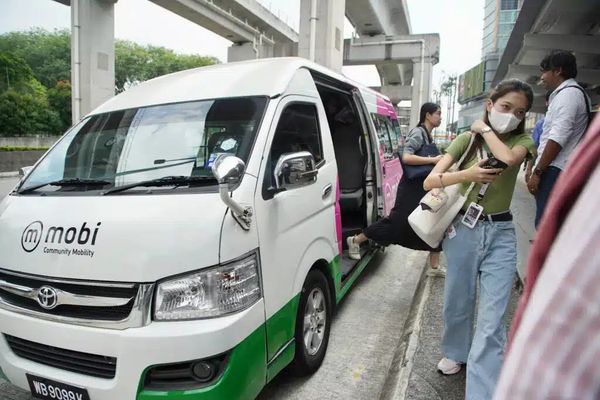By Danial Dzulkifly
PETALING JAYA, Aug 17 — Asia Mobiliti Technologies Sdn Bhd, the tech company providing demand-responsive transit (DRT) service as part of a pilot project in Selangor, believes mobility solutions are a more sustainable approach compared to building more highways.
Its chief commercial officer Vicks Kanagasingam said the firm is collecting data that will provide insights to local governments on where best to deploy mobility services rather than building more road infrastructure to support private cars which ultimately lead to more congestion.
The main issues on why people are reluctant to use public transport services are the convenience of owning a private vehicle as well as local government regulations.
"The problem is that we Malaysians do not like using public transport; we would rather drive. However, we cannot keep building highways upon highways just to accommodate more cars. It will eventually lead to congestion.
“We thought, let us build mobility as a service platform, gather as much data as possible, and empower consumers to see how they can use public transport to get from point A to point B more effectively,” he said during a forum at the PJ Startup Festival 2024 at the Starling Mall today.
A result of this was the DRT service with Selangor Mobility, focusing on four zones (Puchong, Ampang, Bandar Utama and Subang Jaya), dubbed the first mile, last mile approach.
“As soon as you leave home, within the first 100 to 200 metres, you can make a booking. The service picks you up, drops you at the nearest LRT station, and off you go. Then, you can take another mode of transport to reach your workplace,” he said.
Asia Mobiliti’s objective is to create a level playing field for everyone to get to work, not just for the wealthy, but also for the B40 community.
"Regarding regulation, how do we actually promote the use of data? How do we take this data and provide it to government agencies and local municipalities, saying, 'Before you build a highway or expand a road, understand the challenges faced by the people'?
"All of this has helped us improve our solution. Challenges, in fact, are opportunities to look at things differently and improve,'' Vicks said.
He was a guest panelist with Ipoh Timur MP Howard Lee and NanoMalaysia senior vice-president Daniel Bien discussing the next evolution of electric vehicles and sustainable mobility.
At the forum, Vicks also expressed belief that mobility will change drastically in the coming generation, as private car ownership will become a rarity since people might opt to lease cars instead, due to lower commitment and not being burdened with huge debts.
However, this transition would only be possible if there is a drastic change from a whole-of-society approach towards sustainable energy transition, which would power cleaner and more efficient modes of transport.
Lee also weighed in, stating that he agrees on the need for a drastic change towards sustainable power production that would lead to a more sustainable and fically responsible mode of transport.
"Transport must be spoken about, articulated, and debated in the same breath as the energy transition. Without an energy transition in mobility and transport, there is no true energy transition.
"Yes, transport and transportation in general, including logistics, account for around 28 to 32 per cent of global carbon emissions. But let us not allow that to detract us from what needs to be done, a full energy transition, here and now.
"When it comes to public transport, I know we often talk about it being a chicken-and-egg situation: build the infrastructure, and then people will be more inclined to use it.
"But I would say that our intimate love affair, and I would even call it an unhealthy, violent relationship, with private transport is becoming increasingly problematic. It is a relationship we need to transition away from." he said.




